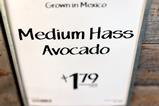First-half results reflect efforts to position business for future growth amid tough trading environment, says company
Belgian multinational Greenyard has reported a €5.8mn decline in net profit for the first half of its 2024/25 financial year to €1.2mn, a result it said reflected further restructuring costs and higher depreciations.
That was despite a 6.1 per cent increase in like-for-like net sales during that period, with revenue boosted by what it described as “inflation compensating measures” and a 2.9 per cent volume increase driven by its fresh business.
Adjusted first-half earnings before interest, taxes, depreciation and amortisation were up 4.6 per cent to €94.4mn.
CEO Francis Kint commented: “After successfully navigating our business during two challenging years in 2022 and 2023, which were marked by unseen inflation, we reached good operational results in the first half of this financial year 2024/25.”
The group reconfirmed its ambition to reach €5.4bn in sales, and an operating profit of up to €210mn, by March 2026.
“Our net sales increased, and we further improved our adjusted Ebitda. This was driven by sustained volume growth, particularly in the Fresh segment, and by managing optimal price levels across both segments, Fresh and Long Fresh.” Earnings before interest and taxes, meanwhile, amounted to €31.4mn, down by €4.0mn compared with the same period of 2023.
The company said this was driven by restructuring costs – including provision for the closure of its fresh business in France, reorganisations within its German fresh produce unit, and “higher depreciations” in both Fresh and Long Fresh.
These were partially compensated by an increase in adjusted Ebitda, it said.
“We’re already actively preparing for next financial year by further enhancing challenging businesses on the one hand and reducing overhead in certain divisions on the other,” Kint noted.
“Additionally, we see further opportunities for operational improvements in the future. The future of food is right in line with our core business, and thanks to the agility of both our people and our operations, we can fully support our customers and growers in the further growth of the consumption of pure-plant foods.”
Continued pressure
Adjusted profit from Greenyard’s core fresh produce operations fell by €0.3mn, or 0.6 per cent, over the six-month period.
The group attributed this mainly to increased labour costs, which it said were due to “higher sorting and packing activities caused by lower quality of produce”, an early Easter (which meant flower volumes and margins were accounted for in 2023/24), continued margin pressure, and a late start to its US citrus season.
Over the six-month period, the group said it had spent €33.0mn on various new assets, of which €12.9mn related to maintenance and replacement.
The remaining €20.1mn was spent on “further capacity expansion and efficiency improvements”.
In its fresh produce business, which accounted for 44 per cent of capex spending, the main acquisitions were new ERP systems, a new mango sorting line, and other investments to improve capacity and quality.
The company also noted that it had made “good progress” on sustainability goals and CSRD reporting, with its packaging on target to be 100 per cent recyclable, and 64 per cent of its energy now sourced from renewables, ensuring it will meet its CO2 reduction target for 2024.








